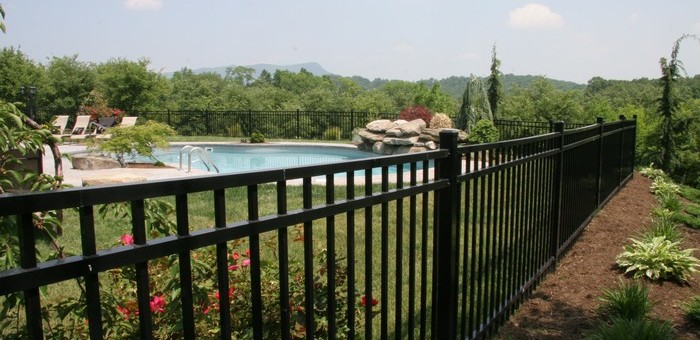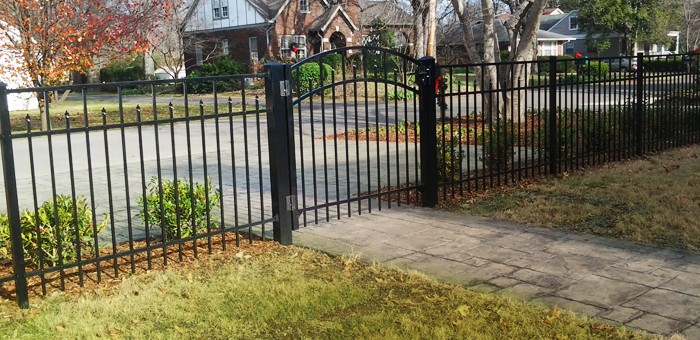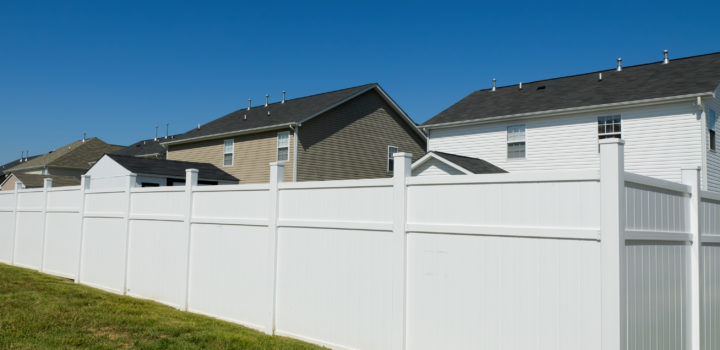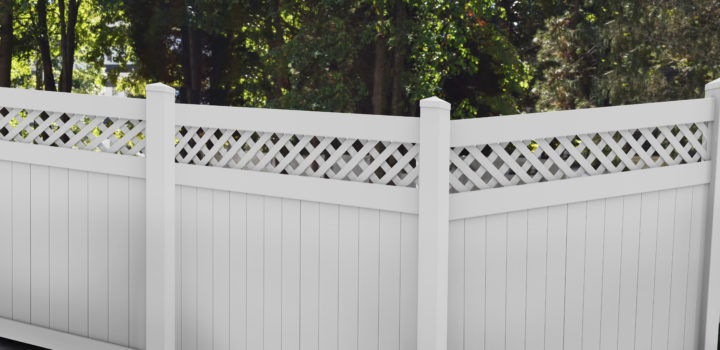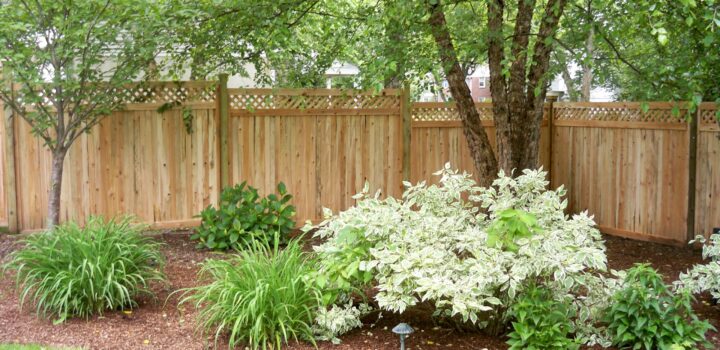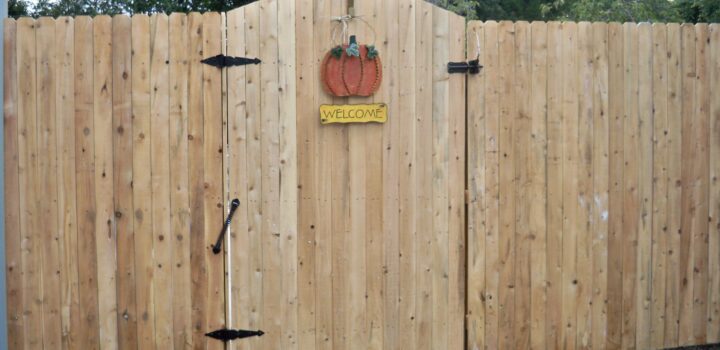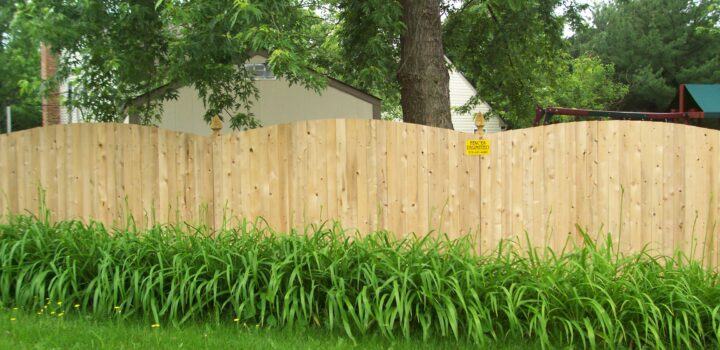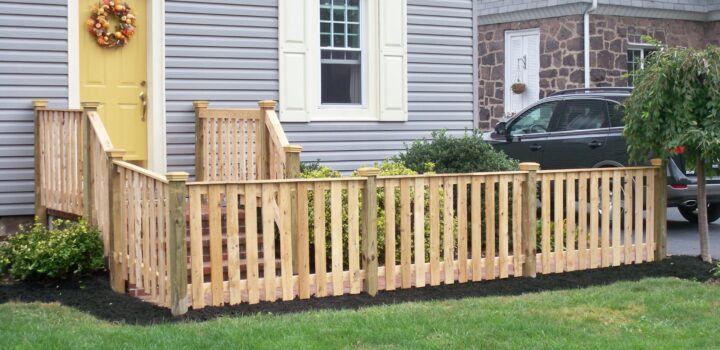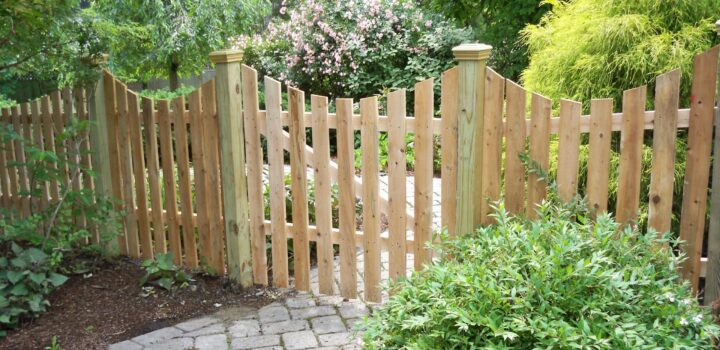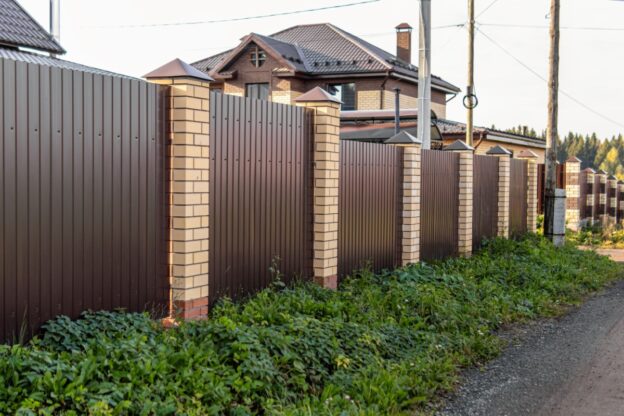Sloped yards, angled terrain, and uneven landscapes introduce complexity to fence installation and may even lead a property owner to assume that fence installation might not be possible. Greenhill Fencing, Inc., a trusted Philadelphia fence company, works closely with each customer to develop practical and visually appealing fencing solutions. Our team considers every angle, curve, and elevation shift to deliver fences that stabilize, enhance, and complement your space. Selecting the right fencing style depends not only on the property’s topography and weather exposure but also on soil conditions, aesthetics, and long-term durability. Let’s consider some options for property shapes that might not be simple, even squares.
Why Sloped and Angled Areas Require Specialized Solutions
When dealing with hills or uneven terrain, a fence must adapt to natural shifts in elevation without compromising function or beauty. The topography of your yard affects not only the fence’s design but also its construction method and anchoring system. Without proper adaptation, fences may lean, shift, or buckle due to soil erosion or inconsistent anchor depth. That’s why fence installation on sloped terrain demands more than a level string and a shovel—it requires experience, precision, and material insight.
Weather and elevation shifts can accelerate soil movement around fence posts. Rainfall, tree root growth, and freeze-thaw cycles impact fence stability on an incline. Our approach integrates tailored measurement techniques and material choices that resist the stress of natural forces. We factor in slope direction, ground conditions, and budget to identify the best possible fencing method for your garden, yard, or commercial space.
Racked vs. Stepped Fence Installation: Two Techniques for Slopes
Two primary methods work well when installing a fence along a slope: racking and stepping.
Racked fences follow the angle of the ground, with each picket adjusted to maintain an even gap at the base. This design is ideal for subtle hills, where you want the fence line to appear smooth and fluid. Materials like vinyl, aluminum, and wood perform well in this format, allowing the fence to blend naturally into the landscape.
Stepped fences, in contrast, are built-in panels that descend in a stair-step fashion along the slope. This approach works best for steep terrain, where racking would leave uneven gaps. While stepped fences may interrupt visual flow, they provide a more consistent structural anchor in areas with dramatic elevation changes.
Choosing between racking and stepping comes down to angle, aesthetics, and intended use. A detailed on-site measurement helps determine which installation method suits your property best.
Dealing With Curves, Angles, and Obstacles
When installing a fence around obstacles like trees, curved areas, or sharp angles, flexibility in both material and design becomes essential. Wood fences are often a top choice in these scenarios, as they can be custom-cut on-site to fit around irregular shapes and tight corners with precision. Chain link fences also work well for navigating curves or uneven spaces due to their pliable nature, which allows them to bend slightly without compromising stability.
Vinyl fences, while more rigid, can still be adapted with segmented panels to accommodate gradual curves or angles. For a more decorative solution, aluminum fencing offers adjustable panels that can be angled to fit complex layouts without gaps. Each of these fencing options provides a practical way to maintain flow around natural or structural features while preserving the function and aesthetics of your yard.
Best Fence Materials for Slopes, Curves, and Angles
Selecting materials that conform to your property’s slope is vital for longevity and appearance. Different materials offer distinct strengths when adapting to sloped or angled terrain:
- Wood fences, such as a classic picket fence, deliver flexibility and visual warmth. Wood is easy to cut and shape, making it suitable for custom adjustments along uneven land.
- Chain link fences stretch to follow curves and angles, offering durability and a budget-conscious solution for irregular land. When paired with a tension wire, they stabilize well on hills.
- Vinyl fences work well with racked installations and resist weathering, but may require more planning on severe slopes.
- Aluminum fences and wrought iron fences combine strength with visual elegance. These materials perform best with stepped designs, allowing for flexibility on uneven terrain.
- Steel or metal fences offer unmatched resilience. On high-gradient slopes, these heavy-duty materials paired with proper anchors create a formidable boundary.
Materials also influence how your fence interacts with the landscape. Consider what impact you want the fence to have on your garden, yard, or hill space—whether it’s to blend in subtly or stand out as a structural wall.
Fence Design That Preserves Aesthetics and Function
No two sloped or curved properties are the same. Some require taller fence posts on one side. Others need retaining elements to prevent erosion. Design also plays a critical role. A curved fence line offers elegance that follows the natural rhythm of the land, while stepped designs create strong visual breaks and compartmentalize space effectively.
Customers often seek fences that both protect and enhance. For example, wire panels installed along garden slopes prevent wildlife intrusion without obstructing views. Iron or aluminum fences create an upscale, breathable barrier that follows elevation changes without appearing heavy. Tree lines, flower beds, and walls all interact with your fence, and we map those layers into the construction plan to preserve beauty and flow.
Why Work with Local Experts
Not all local fence companies understand the nuances of slope-specific fence construction. Greenhill Fencing, Inc. offers tailored solutions for homeowners and businesses throughout Philadelphia. As one of the most experienced local fencing companies, we consider your terrain, soil composition, desired fence height, obstacles, and aesthetic goals before providing you with a recommendation.
The challenge lies not just in fence construction but also in design integration. Our experienced team works within your budget, offering long-lasting fences that balance practicality and visual appeal. We assess the curve of the landscape, the tree root layout, and erosion risks, delivering fences that feel native to your property.
Contact Us to Discuss Fence Installation in Philadelphia, PA, and Nearby Areas
Your sloped yard or angled property deserves more than a one-size-fits-all solution. Greenhill Fencing, Inc. crafts fences designed to meet the unique demands of elevation, terrain, and space. Whether you’re interested in a traditional wood design, a sleek aluminum structure, or a flexible chain link solution, we’re here to guide your project from concept to completion. Visit our fence styles page to explore your options, or contact us for a site evaluation. We proudly serve Philadelphia and the surrounding communities with custom fence installations that work with the land, not against it.

